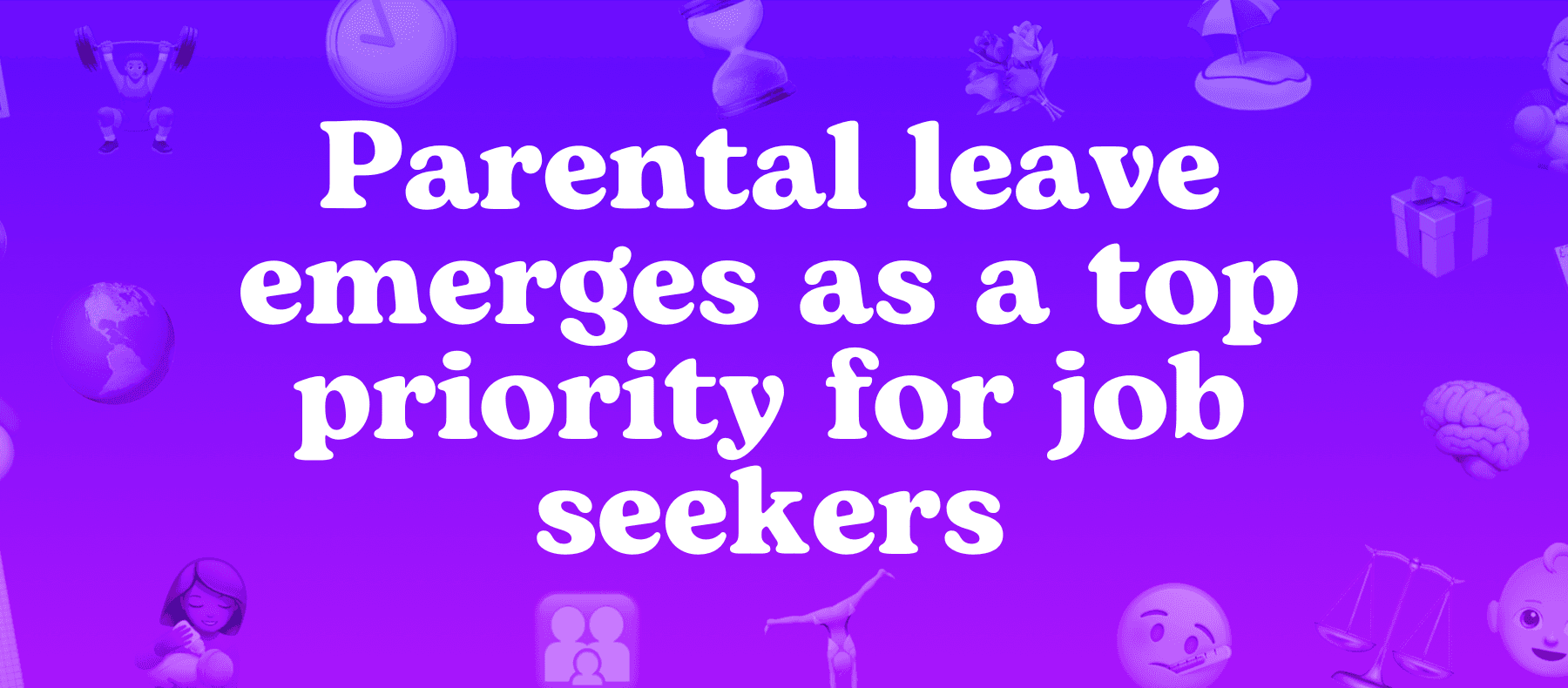Parental leave emerges as a top priority for job seekers
Amidst a tightening labour market and the rollback of some flexible work options, there's one benefit that job seekers are refusing to compromise on: enhanced parental leave.
17th Apr 2024

According to the our latest Flexible Working Index, more workers expressed a preference for enhanced parental leave in March (16% in total) than in any other month over the last year. This trend coincides with the government's expansion of free childcare for parents struggling with rising nursery costs.
The Index analyses data from Flexa and looks closely at a sample of over 4,000 job adverts and 840,000 job searches, as well as the preferences expressed by over 8,500 job seekers between January and March 2024.
So why is parental leave emerging as such a key priority for job seekers?
For one, the cost of childcare has skyrocketed in recent years, putting immense financial strain on working parents. The government's expansion of free childcare is a step in the right direction, but it's clear that workers still need and expect support from their employers when it comes to caring for young children.
Enhanced parental leave policies, like those offered by companies such as Mars UK, Virgin Media O2, and Huel, provide critical support and flexibility for new parents as they navigate the challenges of balancing work and family life.
But the benefits of enhanced parental leave extend beyond just the financial. Research has shown that when parents have access to paid leave and flexible work options, it can lead to improved health outcomes for both the parent and child, as well as greater gender equality in the workplace and at home.
On the flip side, the Index found that some other flexible work benefits, like unlimited annual leave and core hours, have dropped down workers' list of priorities. The number of workers expressing a preference for unlimited annual leave fell by 15% since the start of the year (down from 26% to 22%), while preferences for core hours fell by 19% (down from 16% to 13%).
This suggests that in a tighter labour market, workers are laser-focused on the benefits that will have the greatest impact on their daily lives and long-term wellbeing, like parental leave and remote work options.
As Molly Johnson-Jones, Co-founder and CEO of Flexa, notes:
"Employees are right to hold out for core flexible working benefits (like fully remote and remote-first roles, and enhanced parental leave) that they won't compromise on. The alternative risks employers and employees losing out if individuals find themselves in roles that don't offer the working environments they need to be happy and productive. Many employers already know this. It's because of these true flexible working champions that the future is still bright for flexible job hunters, and that flexible job vacancies are continuing to grow in number in spite of wider market forces."
For companies looking to attract and retain top talent, offering enhanced parental leave and other family-friendly benefits is no longer a nice-to-have, but a must-have. By supporting workers through all stages of their lives and careers, employers can create a culture of trust, loyalty, and high performance.
You can search for all companies offering enhanced parental leave here.